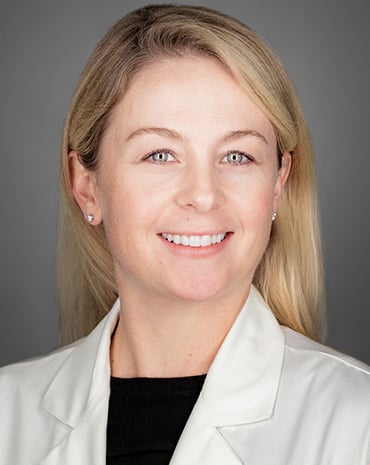Oral Sex Habits Can Affect Your Cancer Risk
About 70% of oropharyngeal cancers—cancer of the back of the throat, base of the tongue and tonsils—are caused by human papillomavirus, or HPV. The Centers for Disease Control and Prevention estimates that about 3,500 new cases of HPV-associated oropharyngeal cancers are diagnosed in women and about 16,200 are diagnosed in men each year in the United States.
HPV is the most common sexually transmitted infection in the U.S. Of more than 100 types, about 40 can spread through direct sexual contact to genital areas, as well as the mouth and throat. About one dozen types of HPV cause cancer, including oropharyngeal, cervical, vaginal, vulvar, penile and anal cancers.
“It is important to note that most people have been exposed to the HPV virus at some point in their lifetime,” said Dr. Caitlin McMullen, a surgeon in the Head and Neck Oncology Program at Moffitt Cancer Center. “Typically, exposure happens many years, even decades, prior to the development of cancer.”

While the majority of those infected with HPV will clear the infection, researchers have been working to determine why some don’t and develop cancer. A new study published in the journal Cancer investigated risk factors for HPV-associated throat cancer, such as the number of sex partners, sexual behaviors and relationship dynamics.
Researchers compared 163 cancer patients with 345 individuals without cancer. None of the participants had received the HPV vaccine, and more than 95% were over age 40. Participants gave a blood sample and answered questions on their sexual behavior.
The cancer patients in the study were about 80% more likely than those without cancer to have ever performed oral sex on a partner. They were also younger when they performed oral sex for the first time—37% of cancer patients were under 18, compared with 23% without cancer.
About 45% of cancer patients had had more than 10 sexual partners during their lifetime, compared with about 20% of those without cancer. Those under 23 who had a sexual partner who was at least 10 years older were also more likely to be infected.
The study also found deep kissing lead to an increased risk of HPV-related oropharyngeal cancers. Those who had 10 or more deep-kissing partners were more than twice as likely to have an HPV-related cancer. Having a partner who had an extramarital affair increased the risk of developing an oropharyngeal cancer by 60%.
“Safe sexual practices continue to be an important component of preventative health,” said McMullen. “Fortunately, there is also now a highly effective vaccine that is FDA-approved to prevent HPV-related disease, including HPV-related cancers for individuals up to 45 years old.”



